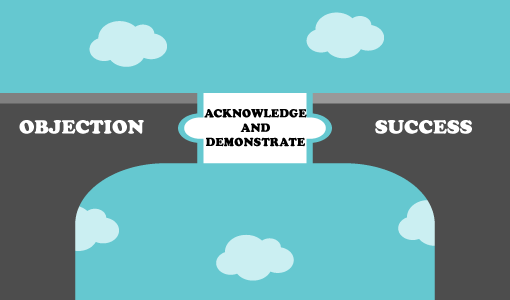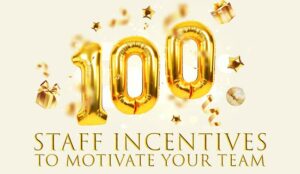Our panel share their best-practice ideas for getting great results from your appointment setting teams.
Appointment Setting Tips
1. Think Who, What and Why
The first principle is that the advisor should aim to present the reason for the call as quickly as they can. Following the system of saying WHO we are, WHAT we do and WHY we’re calling, straight after the initial “hello” greeting, is good practice.
The Who is very simply a brief overview of who the advisor is speaking on behalf of. However, if it was a household name, which almost everyone is likely to know, a simple reference may be all that is required.
The What should also be succinct. Rather than going into a waffle about how good the product or service is, select two or three of the main benefits and present them to the prospect. Asking others within the company for proven benefits that “hook” prospects is a good idea.
Then, all that is left is the Why. Tell the customer why the appointment is needed and promote it just as much as the product, as explained below.
2. Don’t Oversell the Product
An appointment-setting advisor should avoid overselling the product or service that they wish to trade during the initial phone call with the potential customer.
After all, those on the other end of the line will be much more receptive to a phone call that they were expecting than a contact that they were not.
Instead, focus on arranging the meeting and getting a “foothold” in the conversation. Don’t simply suggest to the prospect customer how the product/service could be useful to them, tell them why they should agree to setting an appointment.
3. Develop a Script Framework
To present the product/service to the best of their ability, the advisor must be knowledgeable and equipped with all the information necessary to sell the appointment.
So, after thorough training, try developing a script framework and role play that framework to refine the process, involving the client too. Then do some trial appointment calls to see how the framework is being received, before making some final changes before roll-out.
This is then an ongoing process, where advisors are given the chance to say what has been working and what hasn’t been, to continue the refining the script.
Also, what has proven successful is to ask advisors to provide an individual framework of their own, using the company website and case studies, to help further their understanding of the product/service at the centre of the potential appointment.
However, it must be stressed that it is a script framework, and advisors shouldn’t be forced to stick to the exact language used. It is all about authenticity and building trust with the customer, so only introduce the script as a guideline and for back-up support.
4. Acknowledge Any Concerns and Then Attempt to “Bridge” the Objection
The main objection that an appointment-setting advisor will get is that the prospect customer has not really heard what has been said. So the customer will say to them that they are too busy, or that they have another solution in place, showing no interest in developing the conversation.
To deal with objections like this, firstly ACKNOWLEDGE the customer’s concerns. So, rather than trying to interrupt them and deal with the objection first, let the prospect say why they are not interested, before using empathetic words to signal acknowledgement, e.g. “I completely understand that you are busy…”
Once these concerns have been acknowledged, advisors can begin to bridge the objection. The objective of bridging is to go from acknowledging objections to asking for the appointment again.
This will help to show the prospect that what they have said has been accepted, but the advisor can DEMONSTRATE how the appointment can help them nonetheless. So, what can be useful in this situation is to have an objection-handling sheet for each product, where advisors can share phrases that they have used to overcome common objections such as “I’m too busy right now.”

For more on this topic, read our article: The Top 12 Acknowledgement Statements for Customer Service
5. Advisors Should Avoid Telling the Prospect That They’re “Not Selling Them Anything”
Potential customers will have certain negative triggers, particularly on a cold call, which will cause them to hang up. Telling the prospect that you are not trying to “sell them anything” is one such trigger.
If an advisor says they are not on the phone to sell anything, it’s simply not correct, because they are trying to sell an appointment in the prospect’s schedule.
Ideally, the hook should come from the product or service that is being discussed. So, the advisor should instead put their focus on arranging a time in the customer’s diary and discussing how the product or service will benefit them. The hook will come from this “presentation”, not from defensive statements.
6. Don’t Be Overly Formal
While the “trigger” noted above will cause many prospect customers to hang up, another is when the advisor is overly formal on the phone.
For example, when the salesperson greets the customer, they may say: “Hello, my name is…”, immediately alerting the customer to the fact that this is a sales-related call.
Using “hello” as an alternative to the much more casual “hi” helps to add to the “robotic” tone that is so often negatively associated with salespeople, particularly over the phone.
After all, it is more important to be calm, positive and natural than it is to have assured phrasing.
Authenticity should be what the salesperson wants to convey, and a natural tone usually means using less formal ways of speaking.
So, it won’t hurt to say “thanks” instead of “thank you”, “you’re” instead of “you are” or “have a good day” instead of “goodbye”.
7. Offer a Couple of Dates for an Appointment
An advisor should offer a couple of dates to the prospect and be specific. Or if an advisor chooses to only offer them one day, be specific with the date and time for setting appointment.

Michael Melhado
This is because if the customer is offered two dates, which is often termed an “alternative close”, either outcome is favourable, and it lowers the “customer effort” of having to select one day from many.
Being specific like this also puts a bit more importance on the meeting. The advisor can also, depending on how good an actor/actress they are, pretend to consult their diary and suggest times. This will help to avoid the “I’m too busy” objection, as offering an alternative gives them a chance to say no, but keeps them on the line.
Thanks to Michael Melhado at Luther Marketing Group
8. Focus on Getting Through to the Decision Maker
This is key. Don’t be pushy with receptionists and do not lie, but equally important, do not pitch to them either.
Too many people will either be rude or dismissive of receptionists or outright lie to them. This never goes well and when you do get put through to the decision maker, they will already have a negative impression of both the advisor and the company that they represent.
On the flipside, too many also then try to pitch to the receptionist. This relies on them then passing info on to the decision maker, which never has the same impact because they will never be as passionate about your brand as your staff will be.
Encourage the team to build rapport with receptionists and use statement questions to gain agreement and direction.
9. Get the Balance of Communication Right
The sales team need to understand that any appointment should be mutually beneficial. This means that they need to listen more than they speak.
Speak to advisors about the importance of open questions to engage and gain a better understanding of how the product or service that you offer can genuinely meet the needs of the business that they are contacting.
This enables the team to “match back” the relevant benefits, nipping any objections in the bud before they arise and enabling the appointment to be qualified.
10. Role Play
Role play, role play, role play. This is essential in building the confidence of any advisor and providing early opportunities to ensure that the flow really does flow.
If it doesn’t sound right when you’re practising it, then the advisor has no chance when on the telephone.
Jacqui Workman
Often, call-flows sound great when you are reading them in your head, but very different when spoken out loud.
If it doesn’t sound right when you’re practising it, then the advisor has no chance when on the telephone.
11. Teach the Team How to “Back Out” Gracefully
Teach advisors the importance of backing out graciously while understanding the value of data.

Jacqui Workman
Not everyone is in the right stage of the buying cycle, and while all staff should be able to objection handle with confidence, it should not be to the detriment of your brand or future chances to engage.
If someone is not ready now, then the staff should leave the call on a positive note, obtaining from the decision maker when a good time to discuss the product or service would be. This enables future contact at a time that is right.
Thanks to Jacqui Workman at KMB
12. Don’t Over-Rely on Cold Calling
Who said that cold calling was the only way to help set up an appointment? In this multimedia world, there are multiple ways to set appointments and people prefer alternative methods.
Some like to ignore the original call and listen to the voicemail, others arrange their plans via email, some may even appreciate a handwritten letter.
In fact, it can take a few different “touches”, via different communication channels, to evoke a response from the customer.
Remember that prospect customers are often inundated with sales messages and promotional content, so it will likely take more than one contact to leave a real impression on them.
13. Focus on Prospect Customers Who Have Previously Interacted With the Company
While this may seem obvious, many companies will generate leads, call them once or simply add them to a mailing list and move on, beginning to track down fresh leads.
But what if the potential customer’s needs change in time, or if they have added your organisation to their spam folder?
Don’t over-rely on trying to forge new relationships all of the time, put some effort into nurturing your existing ones!
The chances of success are much greater with a customer who has previously interacted with the organisation than with those who have no history whatsoever.
So, consider contacting those who attended events that your organisation has previously hosted or sponsored.
Also, it could be useful to contact those who have downloaded material from your website in the past, who will have had to leave their contact details in the process.
14. Ask for Referrals
Potential clients will be more likely to speak with an organisation if they have been referred to them by a friend or family member.

So, once a deal has been closed, make sure the customer has your personal contact details and say something along the lines of: “if you know of anyone else who you think could benefit from our product/service, please feel free to share my contact details.”
It could also be useful to contact old customers to ask if they know of anyone who may be interested in your services.
While this should be done by email – as you do not want to irritate past customers by calling, because of the risk of harming any future deals – this can be a very useful tool to make another contact.
However, asking for referrals should not be the sole purpose of the email. Instead include the request in an email (or letter) that thanks the customer for their deal and gives them contact details for if they have any queries with the service.
15. Don’t Put Too Much Pressure on the Prospect Customer
As an appointment setter, it will be expected that you would have “read up” on all the best techniques and tips for selling over the phone, and naturally that may involve applying some pressure.
But don’t overdo it!
People buy from those that they trust, and over-applying pressure could cause the prospect customer to feel uncomfortable.

Charlie Mitchell
So use persuasive and positive language, but don’t force ideas on customers. Tell customer success stories and let them come to their own conclusions.
Also, demonstrating courtesy over the phone is important to put the customer at ease. So preparing a list of courtesy word and phrases that can be sprinkled into the conversation at any given moment can be a useful strategy.
Charlie Mitchell at Call Centre Helper
16. Make Sure That Data Has Been Checked Against the Telephone Preference Service (TPS)
Too often, cold calling through prescribed lists of data, without enough information, can prove a waste of time for both the calling and called parties.
Making sure that your data have been TPS checked beforehand will ensure a better contact rate once initial calls are being made.
Follow the link for: The UK Do Not Call List – An Industry Guide
17. Ask “Do You Have Time to Talk?”

Rushing into a sales pitch without asking if the person has enough time to talk can potentially put them off wanting to listen.
If possible, make sure that they have the time, and if not, arrange a more convenient time to call them. This may prove to be a more successful conversation overall.
Don’t panic if the prospect doesn’t have time right there and then. If it isn’t convenient, just try to establish when is a good time for them.
18. Confirm the Details as Soon as Possible and Schedule Reminders
Once the time and date have been agreed, send a meeting request to confirm the details as soon as possible.
Beyond that, it may be a good idea to arrange a courtesy call or send a further email to confirm that the prospect is still able to attend.
Make time to initiate this contact a day beforehand to avoid disappointment.
19. Give the Prospect the Information They Need to Do Their Own Research
Near the end of the call, provide the prospect with the right links to access company information for themselves.
This can give them the chance to ask any additional questions that they may have prior to the arranged appointment.
20. Make Sure the Right People Are Scheduled for Any Follow-up Meetings

Martyn King
Do what’s possible to make sure that the right people can be involved in the follow-up meeting. This will ensure that the team can field any questions that the prospect may have.
Making sure that the right people are in attendance can also potentially speed up the decision-making process and reduce the possibility of additional or multiple meetings that may not always be necessary.
Thanks to Martyn King at Nexbridge
21. Run Persuasion Training Sessions and Invest in Good-Quality Data

Carolyn Blunt
It is important to support advisors with a training session in the skills and knowledge they need to persuade and influence effectively, thus moving them to a true sales mindset.
In this session, listen to their “blockers” and support the removal of these.
Also, ensure that data quality is good enough and manual dialling is avoided for maximum productivity and conversion.
Thanks to Carolyn Blunt at Ember Real Results
Bonus Tips From Our Readers
Think of a Good Hook That Will Grab the Prospect in the First 60 Seconds
The most important thing when outbound calling is to have a tried-and-tested hook (or a number of hooks) you can use. These should be benefits that will get potential customers interested within the first 60 seconds.
A cold call usually happens when you don’t want to be bothered. If you don’t get the customer’s interest immediately, you will struggle to pull it back, no matter how well trained and knowledgeable your people are.
Thanks to Tom
Ensure That Advisors Understand the Market They Are Calling
It is important to train advisors well, so that they understand the market they are calling, and how it can use the product or service.
Cold calling is about getting past the scripting and truly appreciating that you just interrupted someone’s life and now you need to know how to go on.
Thanks to Rick
Recruit People Who Work Well Under Pressure
The primary focus should be on the individuals you are hiring, in regard to their personality.
- Do they fit the role?
- Do they fit the working environment?
- Can they handle the pressure?
Training is great if it’s targeted at the right person, but if it’s to the wrong person, it really is of little or no benefit.
Remember the Importance of Rapport Building
Don’t just inform the prospect of the product and who your company is. Don’t forget they are people just like you and me, and take the time to build some rapport when needed to try and persuade them.
For example, if the advisor hears someone in the background playing a piano, get them to say: “It sounds beautiful. Who is playing the piano?” This will lead into a conversation about the music or who is playing it and will demonstrate a shared interest between the advisor and potential customer.
But remember to initially keep it short and to the point and then try another pitch to seal the deal!
Thanks to Roland
For more on this topic, read our article: 27 Effective Ways to Build Customer Rapport
What have you tried to improve your appointment-setting success?
Let us know in an email to Call Centre Helper.
First published in April 2016. Recently updated.
Author: Jo Robinson
Published On: 15th Nov 2017 - Last modified: 13th Jan 2025
Read more about - Hints and Tips, Carolyn Blunt, Charlie Mitchell, Cold Calling, Jacqui Workman, Nexbridge, Outbound dialling, Telesales, Training




































Thanks for the tips. The telephone definitely remains the most effective method in setting appointments and I agree that the first step should be to plan the call. The act of preparing is very essential to success. It helps us get the results faster than just “going with the flow.”
Hi, I am going to call for an appointment for a via legalization, could you please help me or give some tips or advise on how to do a call, and what to say?????
Thank you very much, about the tips…. very help ful.
Thanks, it really makes a lot of difference. It is helping me a lot..I scheduled 6 appointments in a day
hi i am an agent supposed to be appointing people to meet up with a chiropractor but I’m having a lot of chanllenges. hope you can help.
Hi am I speaking / May I speak to the property owner? I’m _____ calling from ABC Services at Albert’s Road, South Melbourne, Please don’t mistake me for a telemarketer as I’m not here to waste your time.
We are a appointment setting company that offers free information on how you can save a huge amount on taxes every week, So would you be working and do you feel you pay too much income tax? If ( YES ) So just wanted to know if you will be interested and keen to receive information on how you can save upto 50% of your taxes. If (YES) And the best part is that, there is no cost involved, nor do you have to change your accountant or your financial structure and its obligation free.
Okay!!
If (YES) Proceed
All I need is few minutes of your time to check if you qualify, So I can send home my Qualified Licensed Expert to explain it to you in a form of a presentation which will roughly take 20 – 30 minutes of your time, will and appoint for tomorrow at 6 or 8pm be convenient for you.
Hi! Thanks for this article very helpful, I would like to ask for a help. I am also appointment setter and prospect clients always say NO or not interested. Can you give me convincing script for Health insurance because that’s what we offer. I hope to hear it from you soon, Thanks!
Can you please help me with objections and what to say on outbound calling to booked appointment. I try to sell free quote of advice or consultation for computer or laptop, Internet problem, software etc. Much appreciated.
Very positive, encouraging and helpful, thanks to awesome article. It does not help me in my job but boost my confidence.
Hi can please provide the formula how to compute the number of calls over productivity? we are using manual dial. the answering machine, wrong # are not included on the conversion right?
Perfert timing. I need these tips to help my agent boost her productivity.
hi iam anju iam working in a five star hotel my designation is assistant banquet sales manager i want to know the tips of banquet sales mktng
One important factor about data, don’t just inform them of the product and who your company is. Don’t forget they are people just like you and me, take the time to build some rapport when needed to try and persuade them. Example: You hear someone in the background playing a piano. Ask it sounds beautiful, who is playing the piano? this will lead you into a conversation about the music or who is playing it, but remember to keep it short and to the point and then try another pitch to seal the deal!
thank you very much, it really helps a lot. 🙂
This is truly benificial in my first day job, realated to sales calling. Thanku for this and keep giving us these tips and suggestions.
i am into setting appointment over the phone about solar panel.please help me.i need some tips.thank you
We have two ears and one mouth, try and listen twice as much as you talk. Take control by asking open ended questions, and after a closing statement, do not speak until the prospect does. This will indeed help you reach hot buttons, the prospect actually sets themselves.
I am working right now in a outbound company were selling financial assistance, how can I make the customer interested? Im experiencing a lots of hung up and not interested.
Hi Mary
Yes you are correct. Answering machine and wrong numbers should not be included in the conversion rates.